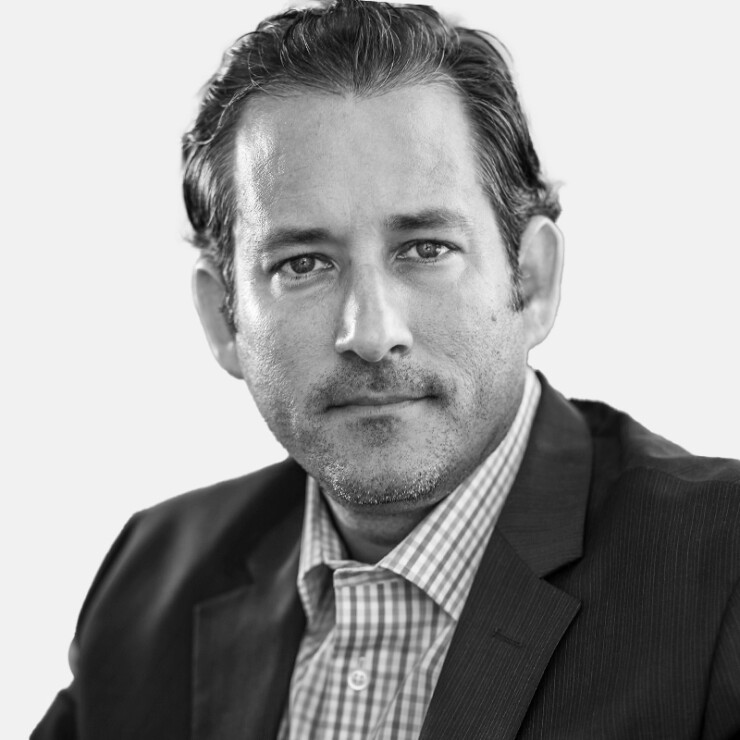A former LPL Financial branch
Dallas-based

The firm's recruiting and M&A plans are focusing on practices like those within Mid-Atlantic that have between $100 million and $500 million in client assets and "need to have more than just investment advisory services as part of their offering," Tomes said.
"You've reached a type of scale to be somewhat dominant," he said. "We're looking for advisors who really want to grow through offering a more comprehensive suite of services and who want to recruit or acquire through their branch."
The parties didn't disclose the financial terms of the transaction, which follows many that have
In an interview, Mid-Atlantic CEO Jimmy Glover and President John Nash cited as a factor in their selection of Level Four the fact that the two firms shared Raymond James in common as their clearing firm. Expertise in areas like planning, retirement and insurance, as well as operational capabilities to take some tasks off the incoming firms' hands, also played a role. The firm "needed a little bit more support than what we were providing ourselves" and sought to avoid folding into a giant after three dozen years as a smaller company, Nash said.
"When I first got into the business, firms were a lot smaller," he said, noting a similar "family atmosphere" at the two firms, which he said enables advisors to speak directly with top executives on a regular basis. "That was important and that is important. You'd hate to lose that. … The atmosphere seems to be more conducive to business and better suited for clients."
Such deals illustrate how some brokerages "have the greatest opportunity for value creation" in the industry amid the long-term shift to recurring advisory accounts and away from transactional sales, according to investment banker John Langston, who advises wealth management buyers and sellers on M&A deals as a managing partner of
"It has just created tremendous value for the owners of the company and the advisors, too," Langston said, noting that he has seen some brokerages triple or quadruple their value by shifting away from the traditional model of generating product sales and commissions. "There's opportunity there. I do think there will continue to be consolidation in that business model. It has a lot of competitive pressure."
Larger independent wealth management firms like Kestra Holdings have learned that "there's always a bull market for financial advice" among mass affluent and wealthy Main Street clients, said Stephen Langlois, the president of Kestra's largest company, Kestra Financial.
"I don't see the broker-dealer of the future getting in between the advisor and the client," Langlois said, comparing wealth management companies like Kestra to hardware unlocking the potential of computers. "We're like the Intel Inside enabling them to be successful and focus on the things that they do the best."
As a midsize wealth management company owned by
Level Four's moves come after
With an array of services "à la carte available to advisors," and "the ability to be nimble and make decisions in a quick way to support the growth" of practices, Level Four is eyeing significant expansion through recruiting and M&A deals, according to Tomes.
He noted "the way that the future of advice is going, and the need to integrate traditional investment management with insurance and estate and tax planning — we feel that we're positioning ourselves in a very disruptive way to take advantage."








